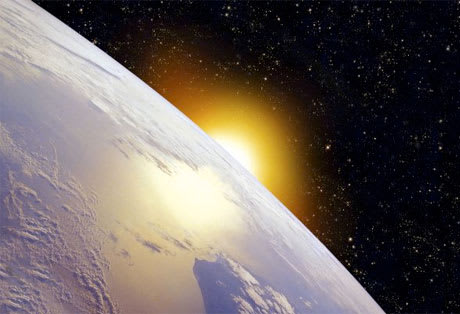Undoubtedly, the greatest achievement and defining factor of Earth, an edited, feature-length version of hit BBC series Planet Earth, is its technical prowess, featuring crystal clear images of animal species from around the world with stunning slow-mo aerial and time-lapse photography. There is no CGI, rather five years of intensive work from a number of cinematographers and camera operators, capturing life as it hasn't been seen before.
Where the series was habitat-based, editing matters into categories of ocean, forest, arctic and so on, the feature film delves into character-based territory, following a polar bear and her cubs post-hibernation, an elephant and her calf as they search for water, and a humpback whale's journey 4,000 miles from a tropical to Antarctic environment.
The message throughout is clear, and repeated every ten-to-15 minutes to remind us, pointing out that our reckless way of living is destroying the fragile balance of life on our planet, threatening those cute little animals we see on screen. It's an entirely valid message, and one that people need to hear, but it is also one that people will deliberately purge shortly after leaving the theatre, purchasing a confection of some sort to forget such unpleasant negativity.
While family-friendly, conveniently cutting away from any drop of blood during the many "circle-of-life" sequences, children may recoil from the many implied deaths of baby animals. Adults may find the boosted, melodramatic score to be a bit much, and the voiceover to be pretty weak in nature, repeating itself and proving quite dry and uninspired.
Follies of writing and score aside, families and potheads alike should delight in the many visual wonders to behold, as this documentary is a landmark technical achievement with a valid message of sustainability and protecting life for the next generation.
(Buena Vista)Where the series was habitat-based, editing matters into categories of ocean, forest, arctic and so on, the feature film delves into character-based territory, following a polar bear and her cubs post-hibernation, an elephant and her calf as they search for water, and a humpback whale's journey 4,000 miles from a tropical to Antarctic environment.
The message throughout is clear, and repeated every ten-to-15 minutes to remind us, pointing out that our reckless way of living is destroying the fragile balance of life on our planet, threatening those cute little animals we see on screen. It's an entirely valid message, and one that people need to hear, but it is also one that people will deliberately purge shortly after leaving the theatre, purchasing a confection of some sort to forget such unpleasant negativity.
While family-friendly, conveniently cutting away from any drop of blood during the many "circle-of-life" sequences, children may recoil from the many implied deaths of baby animals. Adults may find the boosted, melodramatic score to be a bit much, and the voiceover to be pretty weak in nature, repeating itself and proving quite dry and uninspired.
Follies of writing and score aside, families and potheads alike should delight in the many visual wonders to behold, as this documentary is a landmark technical achievement with a valid message of sustainability and protecting life for the next generation.
